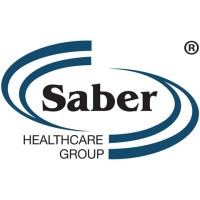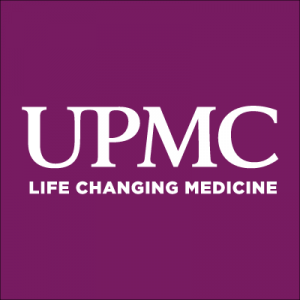UPMC Jameson is currently hiring a casual Professional Staff Nurse to support our 2400 unit.
2400 is a brand new, up and coming, low acuity unit! This 12-bed unit is an amazing opportunity for graduate nurses to develop a strong nursing foundation! This low acuity unit will be fast paced with quick patient turnover, providing great experiences for time management and prioritization development. Experienced nurses will appreciate benefits of a smaller unit and ability to spend more time with their patients. The unit will have 6:1 patient ratios with a Patient Care Technician and Patient Family Concierge. Benefits of joining this team include a small unit, teamwork, influencing unit culture and decision making, skill development, career development, and flexible scheduling.
UPMC is dedicated to providing each patient with the right care, in the right way, at the right time, every time. Our Registered Nurses are essential partners in that mission, enhancing the patient experience at UPMC with positivity and integrity. Join us as we provide Life Changing Medicine to our community.
As a nurse at UPMC, you will find:
- Competitive wages, with the highest BSN differential in the greater Pittsburgh area.
- Top clinicians, leading researchers, and the most modern equipment and technology in health care today
- UPMC offers a very clearly defined Nursing Career Ladder to promote growth throughout your Nursing Career. Applicants will be placed in the appropriate job title and salary from the My Nursing Career Ladder based on their individual experience and education. Please note that the below salary may vary pending years of experience and education of the selected candidate.
Graduate Nurses that are eligible for the State Board Licensure and Professional Staff Nurses with nursing experience will be considered for this position. UPMC is proud to be a leader in nursing education and training by offering a residency program for new nurses.
Final candidates will be selected for a job title within the career ladder that reflects level of education, experience and manager discretion at time of offer.
Responsibilities:
- Develops and maintains productive working relationships internally and externally by demonstrating accountability for actions, enthusiasm, motivation and commitment to patients and colleagues. Demonstrates an understanding of cultural differences and holds peers accountable for healthy relationships. Maintains a conscious balance between work and personal life. Models safe work hours, time management and healthy lifestyle. Communicates with peers and management any safety hazards identified in the workplace.
- Demonstrates knowledge of adult learning principles (and/or teaching children if applicable) and applies in teaching of patients, families, students and new staff. Provides detailed and appropriate teaching to patients and families to effectively guide them through the episode of care as well as transition to another level of care and/or home. Supports the development of students, new staff and colleagues, may serve as a preceptor. Creates an environment of open dialogue, inquiry and continuous development by asking for feedback and improving practice.
- Applies the nursing process within the framework of Relationship Based Care to create a healing environment. Formulates daily goals and a plan of care for patients that involves the patient as partner and considers the individual needs of the patient in a holistic manner. Demonstrates critical thinking in the identification of clinical, social, safety, psychological and spiritual issues for the patient care within an episode of care. Practices solid communication skills, and is able to articulate and translate the patient's condition to other care providers and to negotiate and make recommendations for changes in patient care and unit practices. Patient documentation is comprehensive and promotes communication between caregivers. Incorporates national professional organization as well as business unit and health system's goals to improve patient safety, quality and satisfaction.Creates a caring and compassionate patient focused experience by building healing relationships with patients, families and colleagues.
- Demonstrates accountability for professional development that improves the quality of professional practice and the quality of patient care. Actively participates in unit-based shared governance, goal setting and supports the change and transition process to improve quality of care and the practice environment. Serves as a highly engaged and full partner on the care team and responds willingly to care team member needs for assistance and partnership. Participates in work that improves patient care and the professional practice environment. Adapts to change and demonstrates flexibility with the change process.
- Actively participates in department or unit-specific quality improvement efforts. Identifies opportunity for quality improvement to colleagues and management. Takes personal responsibility in improving patient satisfaction with the quality of care and service. Utilizes research and evidence-based practice to support improvement in clinical care: identifies research issues or articles related to clinical specialty or areas of interest, discusses opportunities for quality improvement at multidisciplinary rounds, and influences patients' plans of care.
- Demonstrates accountability for professional development that improves the quality of professional practice and the quality of patient care. Actively participates in unit-based shared governance, goal setting and supports the change and transition process to improve quality of care and the practice environment. Serves as a highly engaged and full partner on the care team and responds willingly to care team member needs for assistance and partnership. Participates in work that improves patient care and the professional practice environment. Adapts to change and demonstrates flexibility with the change process.
- Applies the nursing process within the framework of Relationship Based Care to create a healing environment. Formulates daily goals and a plan of care for patients that involves the patient as partner and considers the individual needs of the patient in a holistic manner. Demonstrates critical thinking in the identification of clinical, social, safety, psychological and spiritual issues for the patient care within an episode of care. Practices solid communication skills, and is able to articulate and translate the patient's condition to other care providers and to negotiate and make recommendations for changes in patient care and unit practices. Patient documentation is comprehensive and promotes communication between caregivers. Incorporates national professional organization as well as business unit and health system's goals to improve patient safety, quality and satisfaction. Creates a caring and compassionate patient focused experience by building healing relationships with patients, families and colleagues.
- Demonstrates knowledge of adult learning principles (and/or teaching children if applicable) and applies in teaching of patients, families, students and new staff. Provides detailed and appropriate teaching to patients and families to effectively guide them through the episode of care as well as transition to another level of care and/or home. Supports the development of students, new staff and colleagues, may serve as a preceptor. Creates an environment of open dialogue, inquiry and continuous development by asking for feedback and improving practice.
- Actively participates in department or unit-specific quality improvement efforts. Identifies opportunity for quality improvement to colleagues and management. Takes personal responsibility in improving patient satisfaction with the quality of care and service. Utilizes research and evidence-based practice to support improvement in clinical care: identifies research issues or articles related to clinical specialty or areas of interest, discusses opportunities for quality improvement at multidisciplinary rounds, and influences patients' plans of care.
- Develops and maintains productive working relationships internally and externally by demonstrating accountability for actions, enthusiasm, motivation and commitment to patients and colleagues. Demonstrates an understanding of cultural differences and holds peers accountable for healthy relationships. Maintains a conscious balance between work and personal life. Models safe work hours, time management and healthy lifestyle. Communicates with peers and management any safety hazards identified in the workplace.
- *Performs in accordance with system-wide competencies/behaviors.
- *Performs other duties as assigned.
The individual must be able to demonstrate the knowledge and skills necessary to provide care and/or interact appropriately to the ages of the patients served by his/her assigned unit as specified below. They must also demonstrate knowledge of the principles of growth and development over the life span and possess the ability to assess data reflective of the patient's status and interpret the appropriate information needed to identify each patients' requirements relative to his/her age-specific needs and to provide the care needs as described in the department policy and procedures.
- Zero to two years of experience.
- BSN preferred.
- Ability to establish and maintain positive, caring relationships with executives, managers, physicians, non-physician providers, ancillary and support staff, other departments, and patients/families.
- Ability to work productively and effectively within a complex environment, handle multiple/changing priorities and specialized equipment.
- Good clinical judgment with critical thinking, analytical and problem-solving abilities required as related to various aspects of patient care.
- Critical thinking skills necessary to exercise and to lead others in application of the nursing process.
- Mobility and visual manual dexterity.
- Physical stamina for frequent walking, standing, lifting and positioning of patients.
Licensure, Certifications, and Clearances:
UPMC approved national certification preferred. Current licensure as a Registered Professional Nurse either in the state where the facility is located or in a state covered by a licensure compact agreement with the state where the facility is located. CPR required based on AHA standards that include both a didactic and skills demonstration component within 30 days of hire. Graduate nurses must complete licensure examination within SIX MONTHS of hire or within one year of graduation, whichever comes first. Though temporary permits are valid for one year from the date of graduation, not one year from issue of permit (or until the results of the examination are known at which time it becomes null and void), UPMC requires that GNs take the licensure examination within 6 months of their start date, or they will be terminated or demoted from the GN position, at the discretion of the BU.
- Basic Life Support (BLS) OR Cardiopulmonary Resuscitation (CPR)
- Registered Nurse (RN) OR Temporary Practice Permit (TPP)
- Current licensure either in the state where the facility is located or, if the facility is in a state covered by the multistate Nursing Licensure Compact (NLC) agreement, a multistate license issued by a participating NLC state. Hires and current employees working on an out-of-state NLC license who later change their residency to the state where the facility is also located will have 60 days upon changing their residency to apply for licensure within that state.
UPMC is an Equal Opportunity Employer/Disability/Veteran
Annual









